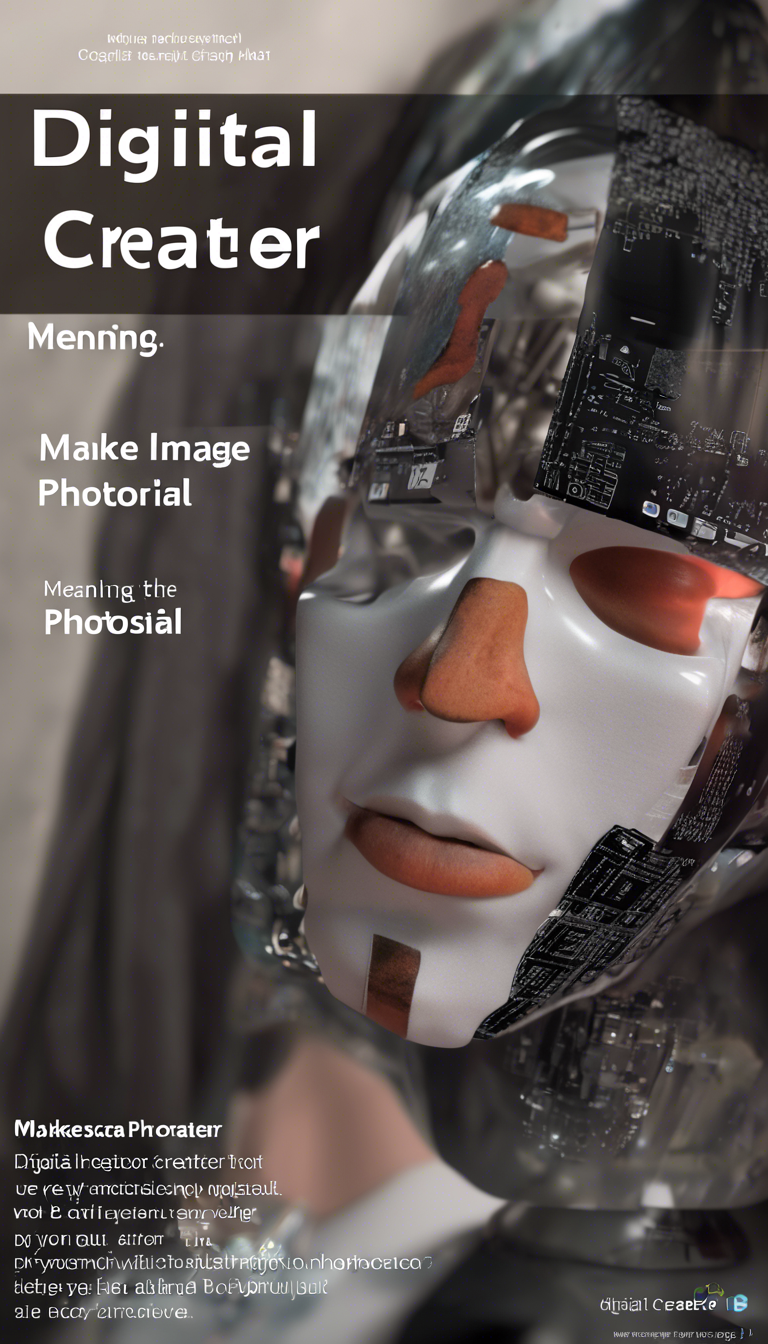Exploring the Digital Creator Meaning: Unpacking the Role and Impact in Today’s Society
The digital landscape has dramatically evolved over the past few years, giving rise to a new wave of content producers known as digital creators. Understanding the digital creator meaning is pivotal in recognizing their role and impact in contemporary society. Essentially, a digital creator is anyone who produces content for digital platforms, using various formats such as video, audio, graphics, or text. They engage audiences through channels like YouTube, Instagram, TikTok, blogs, and podcasts, fundamentally reshaping how we consume information and entertainment.
At the heart of the digital creator phenomenon is creativity intertwined with technology. Digital creators are not merely individuals posting content; they are storytellers, marketers, and innovators. They curate their narratives to resonate with their audiences, carving out niches that reflect their passions and expertise. The appeal of digital creators lies in their authenticity; they often share personal experiences, making their content relatable and engaging.
One of the defining characteristics of digital creators is their versatility. They can take on multiple roles, adapting to the demands of their viewers and the rapid changes in technology. Here are some of the roles digital creators may embody:
- Content Producer: Generating engaging multimedia content across various platforms.
- Brand Collaborator: Partnering with brands for promotions, effectively acting as influencers.
- Community Builder: Fostering a sense of belonging among their followers, often creating loyal fan bases.
- Educator: Sharing knowledge and skills through tutorials, webinars, and informative content.
The rise of digital creators has also transformed traditional marketing and advertising landscapes. Businesses recognize the power of authentic connections that digital creators have with their followers. By collaborating with these creators, brands can tap into niche markets and leverage the trust that these influencers have built with their audiences. As a result, influencer marketing has become a cornerstone of modern advertising strategies.
In the context of social media platforms, digital creators often shape trends and influence public opinion. Their ability to create viral content can lead to significant social movements or bring awareness to key issues, reflecting their societal impact. For instance, creators have played pivotal roles in fostering conversations around mental health, climate change, and body positivity, encouraging their audiences to engage and participate actively.
As we navigate through the complexities of the digital world, digital creators also face unique challenges. The pressure to consistently produce high-quality content can lead to burnout. Moreover, navigating copyright issues, maintaining privacy, and ensuring authenticity in sponsored content can create hurdles that many creators must address. Here are some common challenges:
- Content Saturation: As the digital space becomes crowded, standing out becomes increasingly difficult.
- Monetization Strategies: Finding effective ways to monetize content without compromising quality can be a challenge.
- Audience Expectations: Keeping up with evolving audience preferences and demands can create immense pressure.
- Sustainability: Balancing content creation with personal life can pose significant challenges.
The impact of digital creators extends beyond mere entertainment. They are changing the fabric of communication, challenging traditional norms, and redefining what it means to be a content producer. In many circumstances, they amplify diverse voices, giving platforms to marginalized individuals and promoting inclusivity. This democratization of media allows for varied narratives and perspectives that were previously unheard, fostering a richer cultural dialogue.
Additionally, the educational aspect of digital creation cannot be overlooked. Creators often serve as informal educators, providing information and insights on a variety of topics. Whether it’s about cooking, technology, or health, their ability to simplify complex topics makes learning accessible to a broader audience. This trend of peer-to-peer learning has transformed how knowledge is disseminated and absorbed in today’s digital ecosystem.
Understanding the digital creator meaning encompasses appreciating their multifaceted roles and significant impact on society. As they continue to evolve, the importance of digital creators in shaping culture, influencing opinions, and fostering community will only grow. Their contributions reflect the powerful intersection of creativity, technology, and communication, which will undoubtedly play a vital role in shaping our digital future.
The Evolution of Digital Creation: How Technology is Shaping Creative Professionals
The realm of digital creation has changed dramatically over the years, altering how creative professionals operate and connect with audiences. This transformation has come hand-in-hand with advancements in technology, giving rise to new tools, platforms, and methodologies that redefine creativity and accessibility.
In the past, traditional forms of art, writing, and design predominantly dominated the creative landscape. Artists needed specialized training and often worked within physical mediums. However, the advent of digital technologies has changed the rules of the game. Today, anyone can become a digital creator with just a few clicks. What does this really mean for the industry and for those aspiring to become part of it?
One of the most significant shifts has been the emergence of accessible software and platforms. Programs like Adobe Creative Suite, Canva, and social media tools have democratized content creation. This means that:
- **Less specialized training is required**: Aspiring creators can learn through online tutorials and community forums, drastically reducing the time it takes to get started.
- **Costs are dramatically lowered**: Many platforms offer free or low-cost options, allowing individuals to create high-quality work without the hefty price tags associated with traditional tools.
- **Increased collaboration is possible**: With cloud-based tools like Google Drive and Dropbox, multiple creators can work on projects simultaneously, regardless of geographical limitations.
Moreover, the rising significance of social media platforms cannot be overlooked. These platforms enable creators to showcase their work and reach larger audiences than ever before. Platforms like Instagram, TikTok, and YouTube provide a stage for artists, musicians, writers, and designers to share their creations, receiving instant feedback and engaging with followers directly. This level of interaction has not only shaped how creators present their works but also how they develop their brands.
Digital creators are increasingly becoming influencers, using their platforms to market themselves and their work. This role is multifaceted, as it requires creativity in content creation and a keen understanding of digital marketing. To succeed, creators must:
- **Engage with their audience**: Listening to feedback and adapting work based on audience response enhances their reach and effectiveness.
- **Embrace SEO best practices**: Understanding search engine optimization helps digital creators enhance the visibility of their work online, increasing traffic and engagement.
- **Analyze trends**: Staying attuned to the latest trends allows creators to remain relevant and produce timely content that resonates with audiences.
As technology evolves, so too do the expectations placed on digital creators. The introduction of virtual reality (VR) and augmented reality (AR) has opened new avenues for creativity, allowing creators to engage audiences in immersive ways. This provides an exciting opportunity for artists and storytellers to create experiences that go beyond traditional media.
Another vital aspect of this evolution is the rise in demand for content across industries. Businesses are now aware that high-quality digital content is crucial for engaging customers. Thus, a new breed of digital creators—content strategists, graphic designers, and social media managers—has emerged, skilled in both creativity and analytics. As such, those interested in this field must also consider honing skills in:
- **Data analysis**: Understanding the metrics behind content performance helps creators optimize their strategies.
- **Communication**: Being able to convey messages clearly and effectively can dramatically enhance audience reach.
- **Technical proficiency**: Familiarity with various software and tools remains essential in creating compelling content.
Nonetheless, the rapid pace of technological evolution poses challenges. With so many digital creators entering the market, establishing a unique voice and niche can be daunting. Aspiring creators need to focus on what sets them apart and develop a personal brand that reflects their individuality and expertise.
Furthermore, the issue of digital saturation complicates the environment. High-quality content alone isn’t enough; creators must strategically promote their work to stand out, utilizing social media algorithms and advertising strategies effectively. This requires ongoing education and adaptation to remain competitive.
Technology continuously shapes the landscape of digital creation, offering tools and platforms that empower a new generation of creative professionals. However, it also introduces challenges that require adaptability, strategic thinking, and a deep understanding of digital dynamics. The future of digital creation holds immense potential, making it an exciting time to be part of this ever-evolving field.
Conclusion
The growing phenomenon of digital creators reflects a significant shift in how creativity is perceived and utilized in society today. By examining the digital creator meaning, we gain a better understanding of the diverse roles they play and their impact across various platforms. Digital creators are no longer just individuals who produce content for entertainment; they are influential figures who shape culture, drive trends, and build brands directly through their innovative work.
As technology continues to evolve, so too does the landscape of digital creation. The tools available today empower creators to produce high-quality content with relative ease, removing traditional barriers to entry. In the past, filmmaking required expensive equipment, and publishing a book necessitated finding a publisher. Now, a smartphone and a laptop can suffice for a wide array of creative endeavors. This level of accessibility has democratized creativity, allowing individuals from various backgrounds to share their stories and perspectives, which enriches the collective cultural narrative of society.
The emergence of social media platforms has further amplified the reach and impact of digital creators. With their ability to connect with a global audience, these creators can foster communities, advocate for causes, and influence public opinion. The dynamics of digital spaces mean that creators are not simply producers; they are also community builders. They engage with their audience, receive immediate feedback, and adapt their work based on real-time interactions. This reciprocal relationship between creator and audience contributes to a more personal form of content, resonating more deeply and forming stronger connections.
Moreover, the role of the digital creator is continually evolving. Today’s creators don’t just generate static content; they are often multi-disciplinary, crossing over between video, audio, and written formats. Whether it’s a YouTube video, a TikTok dance, or a podcast episode, digital creators adapt their storytelling strategies to fit different mediums. This versatility is essential in an age where consumers crave varied and engaging experiences. Their ability to pivot and innovate is a testament to the adaptable nature of digital creation.
As digital creators navigate this shifting landscape, they must also grapple with challenges uniquely tied to their profession. Issues like copyright infringement, platform algorithms, and the pressure to produce constant content can influence their creative freedom and mental well-being. The rapid pace of technology means they must stay informed about new trends and tools, which can be both exhilarating and overwhelming. Despite these challenges, many creators possess a tenacious spirit; their passion for their craft often drives them to overcome obstacles and continue producing inspiring work.
On a broader scale, the implications of the digital creator landscape extend beyond individual success. As these creators impact culture, they also influence industries, from marketing to entertainment. Brands increasingly recognize the importance of collaborating with digital creators, fostering partnerships that leverage their reach and authenticity. Rather than relying solely on traditional advertising, businesses are finding that engaging with creators can lead to more genuine connections with consumers. This evolution in marketing demonstrates the power digital creators wield in shaping market trends and consumer behavior.
Furthermore, the digital creator economy presents opportunities for collaboration and innovation that were previously unimaginable. Creators can join forces with one another, share resources, and collectively navigate the complexities of the digital landscape. Innovations like content co-creation, collaborations on platforms, and financial models for monetization enable them to elevate their work while fostering a sense of community among creators. This burgeoning creator economy encourages creativity and tangible support systems, breaking down barriers that used to exist.
Engaging with the concept of digital creator meaning reveals not just the defining traits of these individuals, but also a broader narrative about creativity in the digital age. As creators continue to challenge norms and redefine what it means to create, the conversations surrounding their role become increasingly vital. They are not mere content producers; they are architects of culture and community, wielding influence over how we consume media and interact with one another.
Ultimately, the exploration of digital creation highlights an exciting future. As technology continues to evolve, paving the way for even more creative possibilities, digital creators will remain at the forefront. Their journeys not only inspire fellow creators but also enrich our cultural landscape, inviting us all to reimagine the ways we express ourselves in an increasingly connected world. Each post, video, or podcast shapes the framework of how modern creativity will develop in years to come, ultimately leading to a vibrant tapestry of voices that reflect the complexities of our diverse society.


